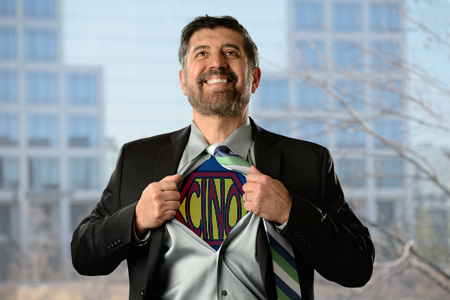The Top 5 Skills Every Chief Innovation Officer (CINO) Needs
.Innovate or die—it’s a common refrain, and more and more organizations are taking it to heart and proactively pursuing innovation programs rather than waiting for innovation to happen. As a result, it’s becoming more and more common for businesses to have someone in their ranks with the title of ch

.Innovate or die—it’s a common refrain, and more and more organizations are taking it to heart and proactively pursuing innovation programs rather than waiting for innovation to happen. As a result, it’s becoming more and more common for businesses to have someone in their ranks with the title of chief innovation officer (CINO). I’ve already discussed some of the ways that other chief officers, such as the CEO, can drive innovation, but a CINO has it as a specific directive. What does a CINO do, and what are some of the important traits of an effective one?
What is a Chief Innovation Officer (CINO)?
The term “chief innovation officer” was first coined in 1998, so this title and the job responsibilities that go with it are relatively new to the business world. The term refers to the person in an organization that is specifically responsible for driving and directing innovation within a company. Sometimes, this is the executive that comes up with new ideas which are then brought to fruition by research and development teams. Other times, this officer is someone who recognizes and develops innovative ideas brought forth by other members of the team, ensuring that the company invests resources in those ideas and coordinating efforts to make them into reality. Either way, the CINO is the flashpoint by which a company’s new and innovative ideas come to fruition.
What makes an effective CINO? There are a few key innovation skills and traits:
1. A High Credibility Factor
It's not enough for a CINO to be respected by the employees in the company (though, certainly, that goes a long way). A CINO has to get the respect of all of the other officers in the company. This is a leadership role, not a “boss” role—and that means that a CINO should ideally have already proven their innovative abilities when they join a company. Having a track record of past successful innovations will add credibility to a CINO’s recommendations. And make it easier to bring other leaders to their vision.
2. The Ability to See and Communicate the Future
Innovation isn't just about coming up with the most original ideas, or recognizing an original idea when it’s presented. The success or failure of an innovative idea is often about timing. That means it’s crucial for a CINO to have a good predictive sense based on their experience in the market, and be able to see where a market might be going, identify future product needs, and contemplate how those needs will be filled. Not only that, but the CINO must be able to communicate those predictions in ways that make sense to others within an organization. They should be able to explain how they reached their conclusions. And map out how the organization might go about adapting to those new realities.
The success or failure of innovation is rarely about the idea. It's all about the timing.
Phil McKinney
3. The Ability to Drive Ideas and Action In Support of His or Her Vision
Put simply: it's not enough to have a vision. As a CINO, you have the power to drive ideas and actions around that vision to make it a reality. Forbes notes a CINO doesn’t just need to ideate, prototype, and launch a product, but does so in a team environment and in a way that plays on each team member’s individual strengths. As a CINO, you're a team leader foremost, and you need to know how to communicate your vision to a variety of people in such a way that it becomes their vision, too.
4. The Ability to Identify, and Disarm the Innovation Antibodies
Innovation antibodies are the forces within an organization that fights against anything that threatens the status quo, much like how the antibodies within our own bodies fight against outside invaders. While they mean well by trying to protect the stability of the whole, they can end up doing a lot of damage by shutting down positive change.
One of the most important traits that a company can have is the ability to grow and adapt to change. Being resistant to change is anathema to innovation—no good ideas were ever born out of fear. As a CINO, you have the ability not only to function as the leader of a team but also to identify those team members who are resistant to change. You need to figure out why and what it will take to disarm them. Whether they just need further education to understand the necessity for change or they simply aren’t suited to work for an innovative company, it will be up to you to decide how to handle these antibodies.
5. The Ability to Build and Bridge Connections
Finally, as a CINO, you need to prioritize building connections, both within your organization and between it and other organizations. A CINO should be willing to set aside ego and not worry about who gets credit for innovation, but foster openness and transparency to drive collaborative change. Many innovative companies crowdsource product ideas and seek the expertise of partner organizations. It’s about giving and sharing in order to create the best possible innovation by using all available resources.
CINO Impact
A chief innovation officer can be a huge asset to a business if they have the right skills and traits—and not every brilliant innovator will be a great CINO. It’s a leadership role that requires traditional leadership skills and the ability to apply them to the fast-paced world of innovation. Contact me for more information about how to improve your company’s innovation practices.
Phil McKinney Newsletter
Join the newsletter to receive the latest updates in your inbox.




